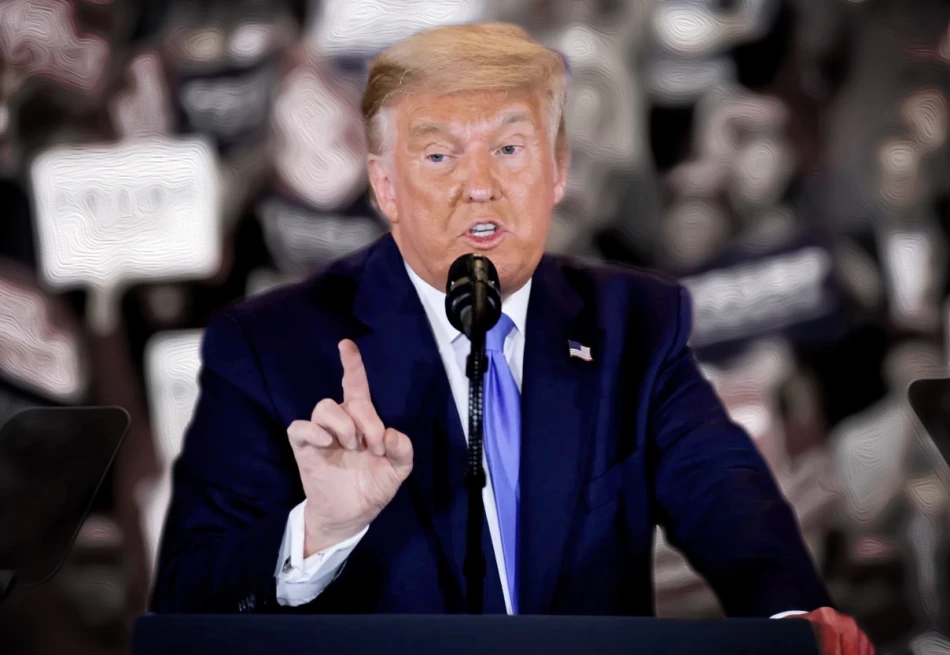
Trump Hails Trade as Powerful Tool to End Conflicts
Trump Signals Economic Diplomacy as Key to Ukraine Peace Strategy
President Donald Trump emphasized trade as a "wonderful way to end wars" during a White House meeting with NATO Secretary-General Mark Rutte, just hours after announcing a new weapons package for Ukraine. The remarks suggest Trump may be positioning economic incentives as a central pillar of his approach to resolving the ongoing conflict, marking a potential shift toward transactional diplomacy in one of the world's most pressing geopolitical crises.
The Dual Approach: Military Aid Meets Economic Leverage
Trump's comments from the Oval Office highlight what appears to be a two-pronged strategy combining continued military support with economic incentives. This approach mirrors tactics used in previous conflicts where trade relationships and economic partnerships have served as pathways to sustainable peace agreements.
The timing of these remarks is particularly significant, coming immediately after the weapons package announcement. This suggests the administration may be using military aid as leverage while simultaneously exploring economic solutions that could appeal to all parties involved in the conflict.
Historical Precedent for Economic Peace-Building
Lessons from Past Conflicts
Trump's emphasis on trade as a conflict resolution tool has historical precedent. The Marshall Plan after World War II demonstrated how economic reconstruction could cement peace, while trade relationships between former adversaries like Germany and France became foundational to European stability.
More recently, economic interdependence has played crucial roles in conflict de-escalation across various regions, from the Camp David Accords' economic components to trade-based diplomatic initiatives in Southeast Asia.
Strategic Implications for Global Markets
Investor Perspective on Ukraine Resolution
Financial markets have closely watched developments in the Ukraine conflict, with energy prices, defense stocks, and European markets particularly sensitive to peace prospects. A trade-focused resolution could signal opportunities for reconstruction investments and normalized energy flows, potentially stabilizing volatile commodity markets.
Defense contractors, who have benefited from increased military spending, may need to pivot toward reconstruction and infrastructure opportunities if economic diplomacy gains traction.
Geopolitical Risk Assessment
Trump's approach could reshape how international conflicts are addressed, potentially influencing other regional disputes where economic incentives might prove more effective than purely military solutions. This strategy may appeal to war-weary populations and cash-strapped governments seeking alternatives to prolonged military engagement.
NATO Alliance Dynamics
The presence of NATO Secretary-General Rutte during these remarks underscores the importance of alliance coordination in any peace strategy. European allies, who bear significant economic costs from the conflict through energy disruptions and refugee support, may welcome approaches that emphasize economic solutions over extended military commitments.
However, this approach will require careful balance to ensure that economic incentives don't undermine the security guarantees that form NATO's core mission.
The Path Forward
Trump's emphasis on trade-based solutions represents a pragmatic recognition that sustainable peace often requires economic foundations. While military aid addresses immediate security needs, economic partnerships could provide the long-term stability necessary for lasting resolution.
The success of this approach will depend on crafting economic incentives attractive enough to all parties while maintaining the security commitments that have prevented conflict escalation. As global attention focuses on this potential shift in strategy, the coming weeks may reveal whether economic diplomacy can indeed serve as the "wonderful way to end wars" that Trump envisions.
Most Viewed News

 Sara Khaled
Sara Khaled






